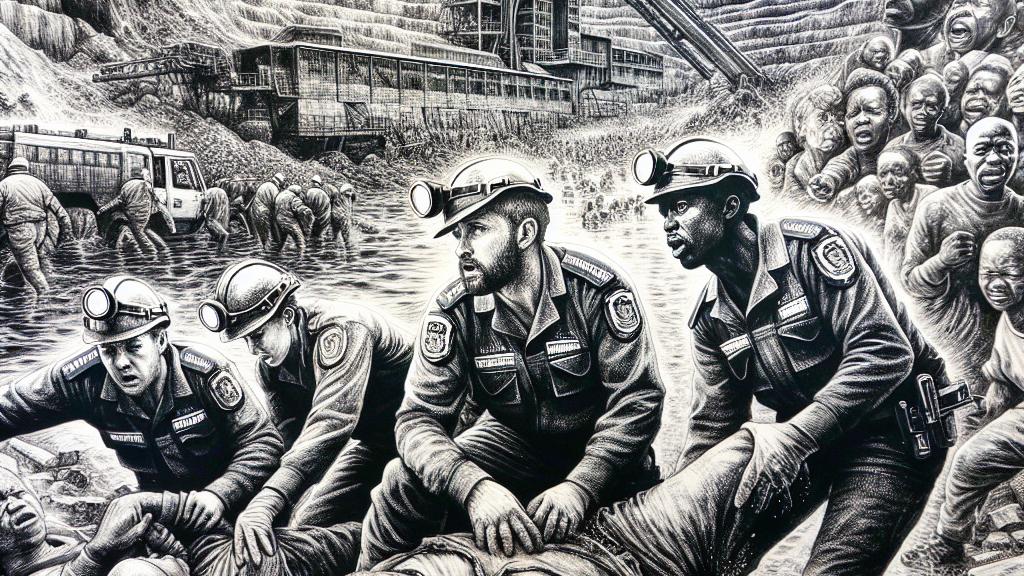Police Rescue Efforts for Miners in South Africa
Overview
- A heartbreaking crisis in South Africa unfolded as 78 miners lost their lives in an underground siege.
- Authorities resorted to extreme measures, cutting off essential supplies to combat illegal mining operations.
- Union outcry emphasizes the devastating human toll and ethical dilemmas surrounding these harsh tactics.

The Dark World of Illegal Mining
In Stilfontein, South Africa, a dark narrative unfolded—a narrative filled with desperation and tragedy. The Buffelsfontein gold mine became the epicenter of a horrific incident where at least 78 miners lost their lives. Many of these individuals weren’t simply breaking the law; they were desperate souls seeking hope in a country afflicted by soaring unemployment rates. Imagine the desperation: cutting off food and water supplies in an attempt to force these miners into the open? Such tactics raise alarming questions about the morality of sacrificing human lives in the name of law enforcement.
Outrage Over Inhumane Tactics
Across South Africa, a wave of anger erupted as trade unions condemned the police's ‘horrific’ measures. These miners were not just faceless statistics; they were individuals with dreams, families, and responsibilities. The authorities' heavy-handed approach—where desperate people were left starving underground—defies basic human rights. Instead of protecting the community, these actions effectively portrayed the miners as expendable in the eyes of a government more interested in cracking down than understanding their plight. This grim reality makes one wonder: where is the line between law enforcement and humanity?
The Human Impact of Illegal Mining
To fully grasp the tragedy of illegal mining, picture the faces behind those numbers—individuals driven underground by poverty and despair. The UN and other organizations have extensively documented how illegal mining often leads to severe human rights abuses and environmental destruction. Each miner who ventured into the depths of that mine represented a family struggling in silence, grappling with the harsh economic landscape of South Africa. They weren't criminals; they were survivors. This situation highlights a significant truth: when innocent lives are sacrificed, society must undoubtedly reflect on who the real victims are.
A Call for Change and Compassion
As the dust settles over this tragedy, a crucial question remains: What lies ahead for illegal mining in South Africa? The government must reevaluate its strategies. Instead of drowning in punitive measures that ignore the needs of its citizens, a shift toward compassion and support is essential. By addressing underlying issues like unemployment and lack of access to resources, sustainable solutions can emerge. Imagine a future where people are empowered with education and job opportunities rather than being pushed into perilous underground mines, creating a societal shift from exploitation to empowerment. Let’s transform this moment of tragedy into a beacon of hope for reform and renewal.

Loading...